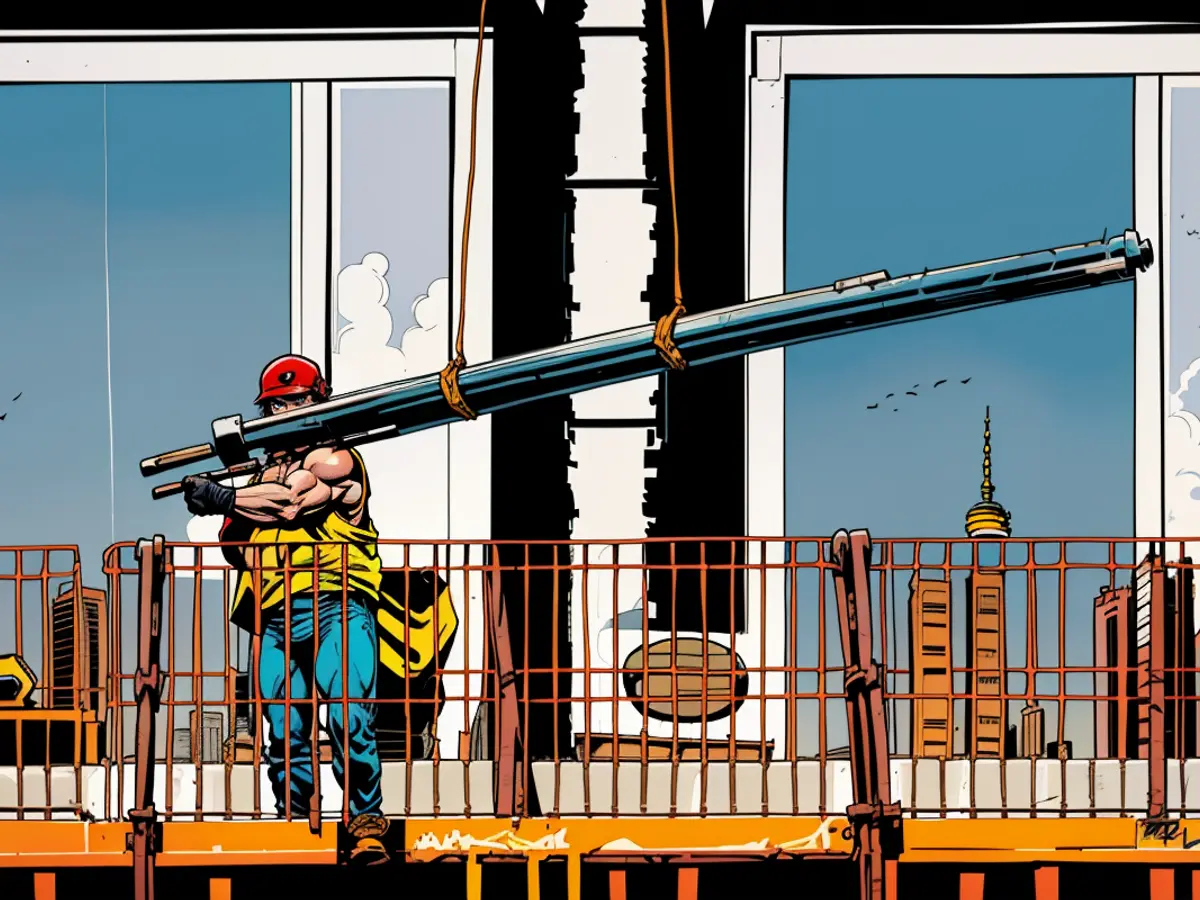Maue Halbjahresbilanz: etwas mehr als 100.000 Wohnungen genehmigt
Im ersten Halbjahr 2024 kam es beim Bau von Einfamilienhäusern zum größten Rückgang: Hier wurden 18.600 Häuser genehmigt, ein Rückgang von fast 31 Prozent im Vergleich zum Vorjahr, wie die Statistikbehörde weiter mitteilte. Bei Doppelhaushälften lag der Rückgang bei fast 15 Prozent, bei Mehrfamilienhäusern bei etwa 21 Prozent.
"Das aktuelle Niveau der Baugenehmigungen entspricht lediglich etwas mehr als 200.000 neu gebauten Wohnungen pro Jahr", erklärte Sebastian Dullien, wissenschaftlicher Direktor des Instituts für Makroökonomie und Konjunkturforschung (IMK) an der Hans-Böckler-Stiftung. Das ursprüngliche Ziel der Bundesregierung, jährlich 400.000 neue Wohnungen in Deutschland zu bauen, ist "unrealistisch" für diese Legislaturperiode.
Die größte Belastung ist das historisch starke Ansteigen der Zinsen durch die Europäische Zentralbank (EZB) in den vergangenen zwei Jahren. "Die Zinsen für zehnjährige Hypotheken hatten zeitweise vervierfacht von rund einem Prozent und sind noch immer mehr als dreimal so hoch wie im Tief."
Dullien erwartet eine Wende auf dem deutschen Wohnungsmarkt "spätestens im späteren Verlauf von 2025, wenn die EZB die Zinsen deutlich gesenkt hat und diese Zinssenkungen auch auf die Nachfrage beim Bau von Wohnungen durchschlagen."
Die EZB hatte die Leitzinsen zehnmal in Folge seit Juli 2022 aufgrund steigender Inflation erhöht und sie von Oktober bis April 2024 auf einem hohen Niveau gehalten. Meanwhile, the inflation rate in the eurozone has declined significantly, and in June, the central bank lowered the interest rate by 0.25 percentage points to 4.25 percent. What will happen in September is "completely open," emphasized ECB President Christine Lagarde.
Industry associations called on politics to do more against the slump in housing construction. "The traffic light coalition emphasizes its will to create affordable housing. However, political will alone does not build a single apartment," explained Tim Oliver Müller, CEO of the main association of the German construction industry. New state requirements and regulations will not help. Müller praised the "streamlined" state building regulations in Lower Saxony - other federal states should "urgently" follow this example.
The Central Association of the German Construction Industry also urged that states and municipalities could boost housing construction - the state building regulations are "the sharpest sword" to simplify construction. Lower Saxony has set a "real blueprint" for other states, praised main CEO Felix Pakleppa.
He listed: Distance requirements have been reduced, allowing buildings to be built larger. The obligation to create parking spaces when building apartments also falls away. Moreover, the possibilities for attic conversions or extensions have become easier. "If we could build like this in all 16 federal states, more affordable apartments would also be created again."
However, the impulses of the federal government are "too weak" to get the housing construction going again, criticized Pakleppa. Due to high interest rates and stricter energy requirements, building has become unaffordable for many - "or it simply no longer makes sense."
The Federal Association of German Housing and Real Estate Companies (GdW) demanded an "absolute balancing priority for the construction of apartments," as it was introduced for the construction of renewable energy sources. The Building Code must be designed accordingly.
"Mantra-like", the GdW has been demanding a low-interest program for affordable housing for many months. "An interest rate of one percent could significantly boost construction activity and once again enable guaranteed, affordable rents of ten to twelve euros per square meter." The GdW calculates that a one-percent interest subsidy would be cost-neutral for the state due to increased tax revenues from a revitalized construction industry.
The Commission, in response to this housing market situation, has also adopted a communication on the implementation of housing programmes to address the challenges faced in the German housing market. The implementation of this communication could potentially provide financial support and incentives to encourage housing construction and make it more affordable.







